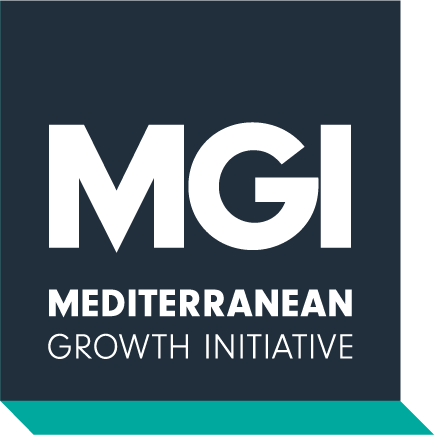MGI Weekly round-up | May 26th 2017
Stories MGI has been tracking this week:
● An eventful week in Greece as bailout talks stall, pending German election
● Montenegro joins NATO, integrating further with the West
● Italy hosts G7 summit
And as always, we feature content from the MGI data and analysis platform, a summary of the week’s key statistical releases, and a look to the week ahead in data. This week’s featured content highlights Montenegro’s growing economy.
Eventful week in Greece as bailout talks stall, pending German election
President Prokopis Pavlopoulos was in Istanbul on Monday for the 25th anniversary summit of the Black Sea Economic Cooperation, where he was scheduled to meet with Turkish counterpart Recep Tayyip Erdogan. However, the meeting was abruptly cancelled by the Turkey president.
On Thursday, former Greek prime minister Lucas Papademos was injured in an explosion under his car in central Athens. He is being treated for non-life threatening injuries.
Both events occurred against the backdrop of ongoing talks with the IMF and European lenders on a debt restructuring plan for the Greek government. On Monday night, all parties but Greece reached an agreement: to talk again after the German election. Postponement of a debt deal was, it seems, the only way to resolve differences between the IMF and Germany. The IMF won’t lend Greece more money until European creditors describe in detail how they will lower Greece’s debt load, and European lenders won’t describe debt relief in detail to their taxpayers ahead of elections.
The development puts Greece’s debt crisis on hold until winter or even next year. This will help Europe through political events scheduled for the remainder of the year but harm Greece’s ability to resolve uncertainty and embark on a path to economic recovery.
Montenegro joins NATO, integrating further with the West
Montenegro became the 29th member of NATO this week. While the move may bring short-run pain by souring its relationship with Russia, the country may benefit from future economic growth as it integrates further with Western economies.
Russia has been courting the country in the decade since it split with Serbia by encouraging investment and tourism. It views Montenegro’s Adriatic as an attractive strategic asset. Since NATO talks grew serious, Russian tourism has declined significantly to 7% in March 2017, down from 30% in 2014. Montenegro’s people are divided on the issue, with many recognizing the strong historical ties to Russia. Others worry about Russia’s influence in the social and political sphere that may not have their best interest at heart.
Italy hosts G7 summit
Italian Prime Minister Paolo Gentiloni is hosting Donald Trump and other leaders of the G7 group of high-income countries today (Friday May 26th) and tomorrow. The summit is expected to focus on terrorism, while shying away from topics on climate change and free trade that are likely to prove more confrontational with the U.S. president in attendance.
The meeting has pivoted to focus on terrorism in response to this week’s bombing in Manchester. North Korea’s escalating missile tests are also likely to be high on the agenda, as a particular concern to Japan. To the extent that discussions surrounding Trump’s promises to withdraw from the 2015 Paris accords on climate change arise, they will be conducted delicately.
Featured content from the MGI.online data and analysis portal
Montenegro is a small country of only 622,000 people, whose influence as a strategic NATO asset punches above its economic weight. The country has experienced a significant economic expansion recently, with 16 periods of consecutive growth. Unemployment nonetheless remains stubbornly high.
The week in data
It was a mixed bag of data releases across the Med this week. Releases which MGI has been tracking include:
● Spain's Industrial Prices Index in April is up 5.9% compared to April 2016, but flat on a month-over-month basis http://bit.ly/2qe8Yzw
● Exports in Greece grew by 23.2% in March but imports rose more, raising the current account deficit by €551 billion to €1.3 billion (http://bit.ly/2rP2Mvh). Greece's wholesale trade turnover index in 2017Q1 jumps 17.4% YoY, reaching its highest level since 2014Q3 (http://bit.ly/2r888Ew)
● France's composite PMI grows for 11th month straight to 57.6 vs April’s 56.6. Highest growth in 6 yrs, according to IHS Markit’s latest survey (http://bit.ly/2rvXS97)
● Israel adds 11K jobs in April, but unemployment rate rises to 4.4% from 4.3% as more workers join labour force (http://bit.ly/2qNRwyT)
Looking ahead
Tuesday and Wednesday will be telling days for the Mediterranean’s economies, with dozens of market moving releases on employment, inflation, and confidence. MGI’s complete data release schedule can be viewed at https://www.mgi.online/release-calendar/.
Monday 29th May, 2017:
● Spain retail sales for April
● Israel central bank interest rate decision
● Croatia IPI for April
● Cypris IPI for April
Tuesday 30st May, 2017:
●France consumer confidence for May, GDP growth rate for Q1 (2nd estimate), household consumption for April
●Spain harmonized and domestic inflation for May, preliminary estimate
●Spain business confidence for May
●Italy producer price index for April
●Greece consumer and business confidence for May, and producer price index for April
●Turkey central bank Financial Stability Report
Wednesday 31st May, 2017:
●France inflation rate for May (preliminary estimate) and producer price index for April
●Turkey balance of trade for April
●Italy unemployment rate for April
●Spain current account for March
●Greece retail sales for March
●Italy harmonised and domestic inflation rate for May
●Montenegro employment for April
Thursday 1st June, 2017:
●Manufacturing PMI for most of the Mediterranean’s major economies
●Italy GDP for Q1 (final estimate)
●Cyprus CPI for May
Friday 2nd June, 2017:
●Spain unemployment for May
●Greece GDP for Q1 (final estimate)
Croatia GDP for Q1
